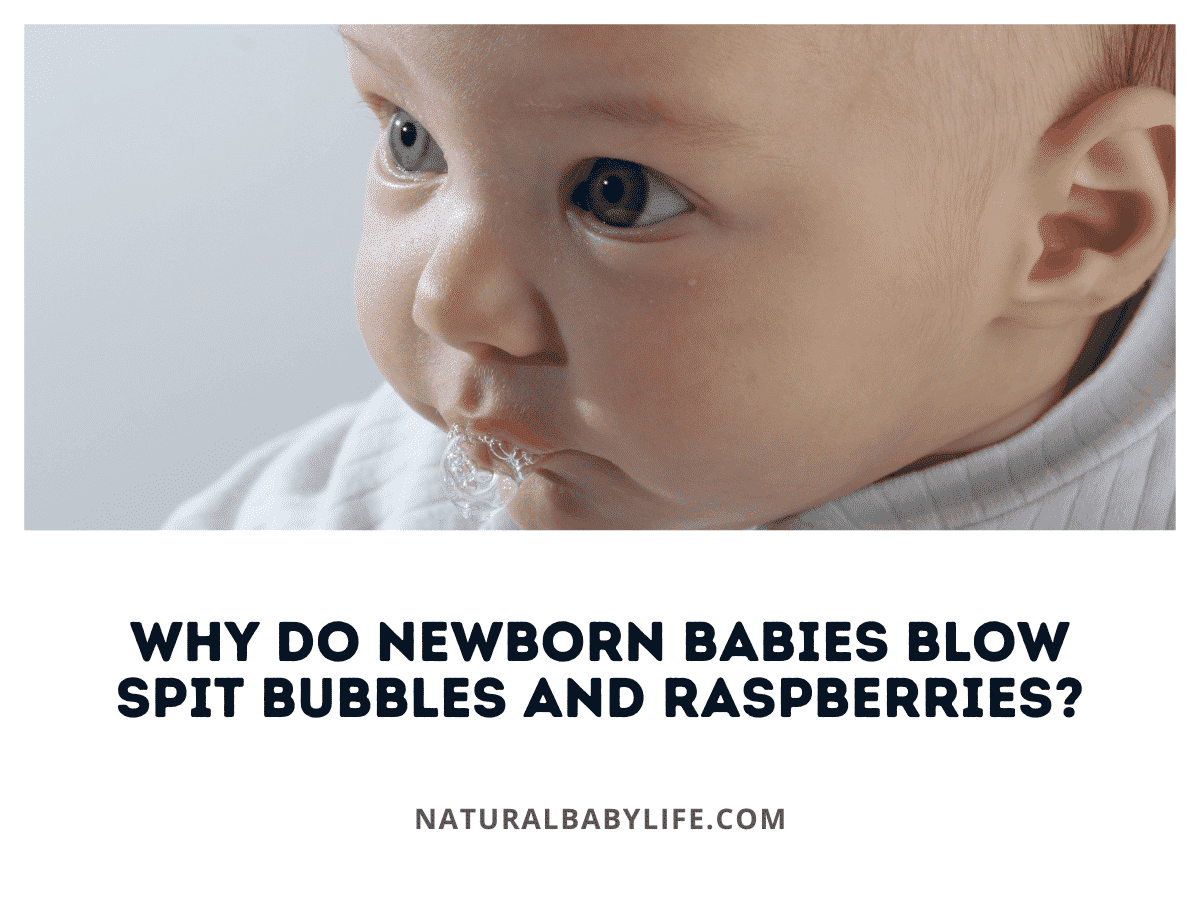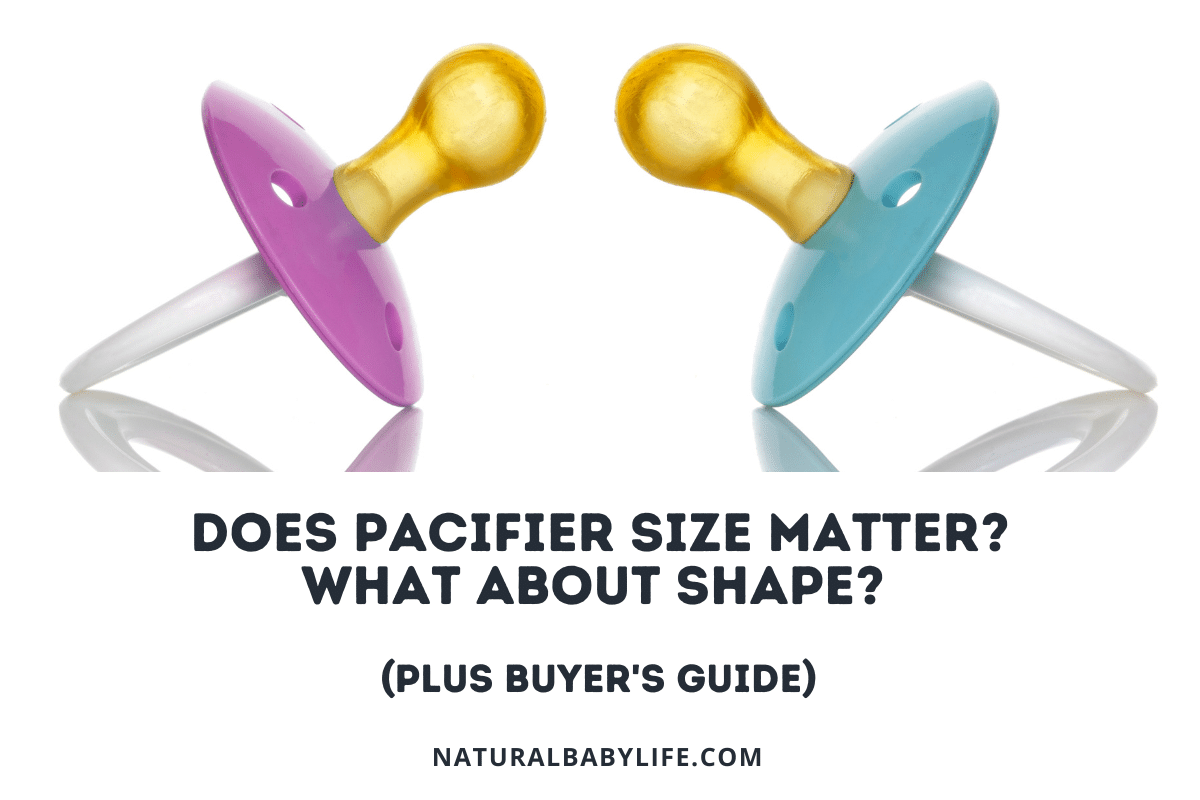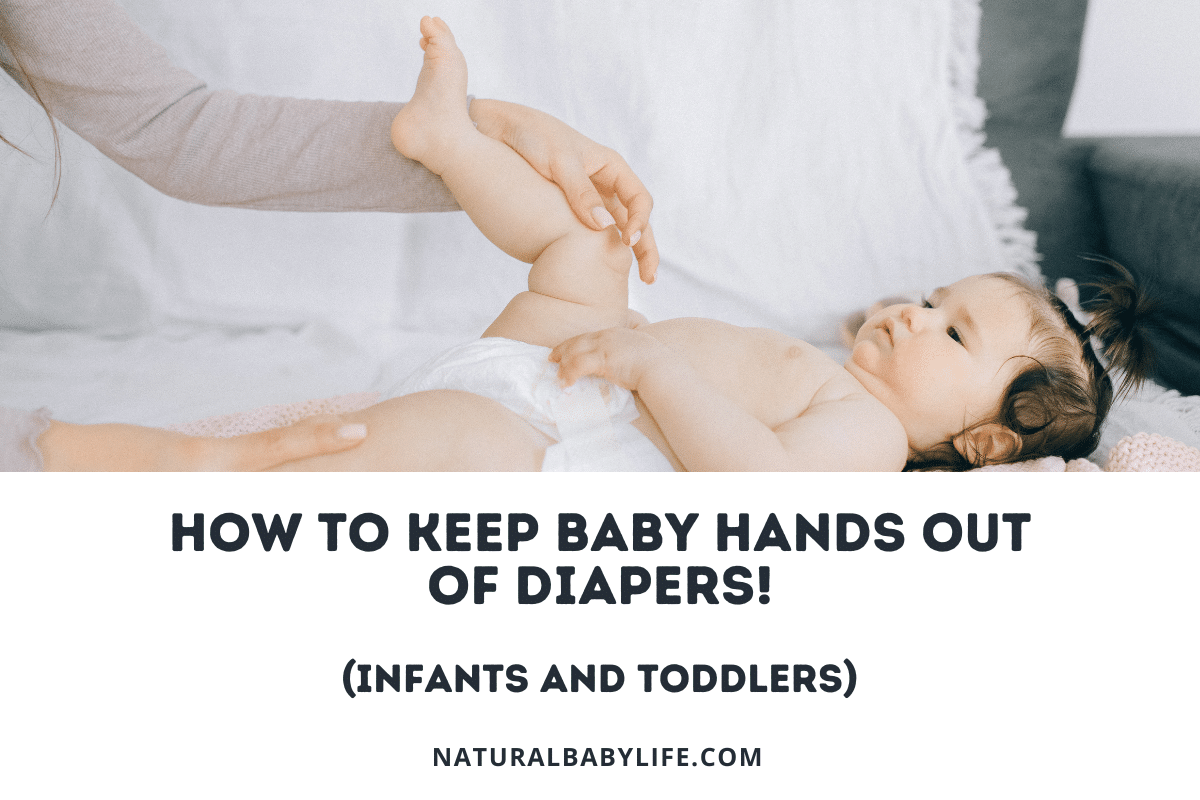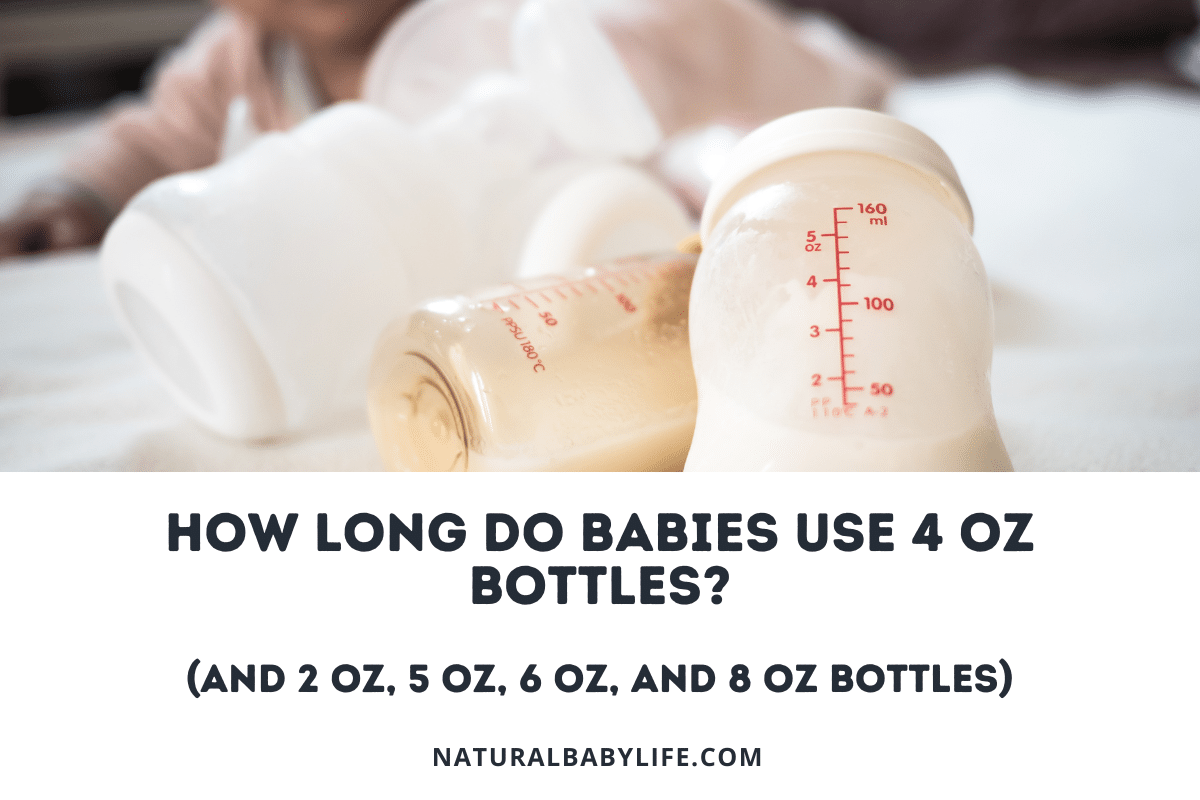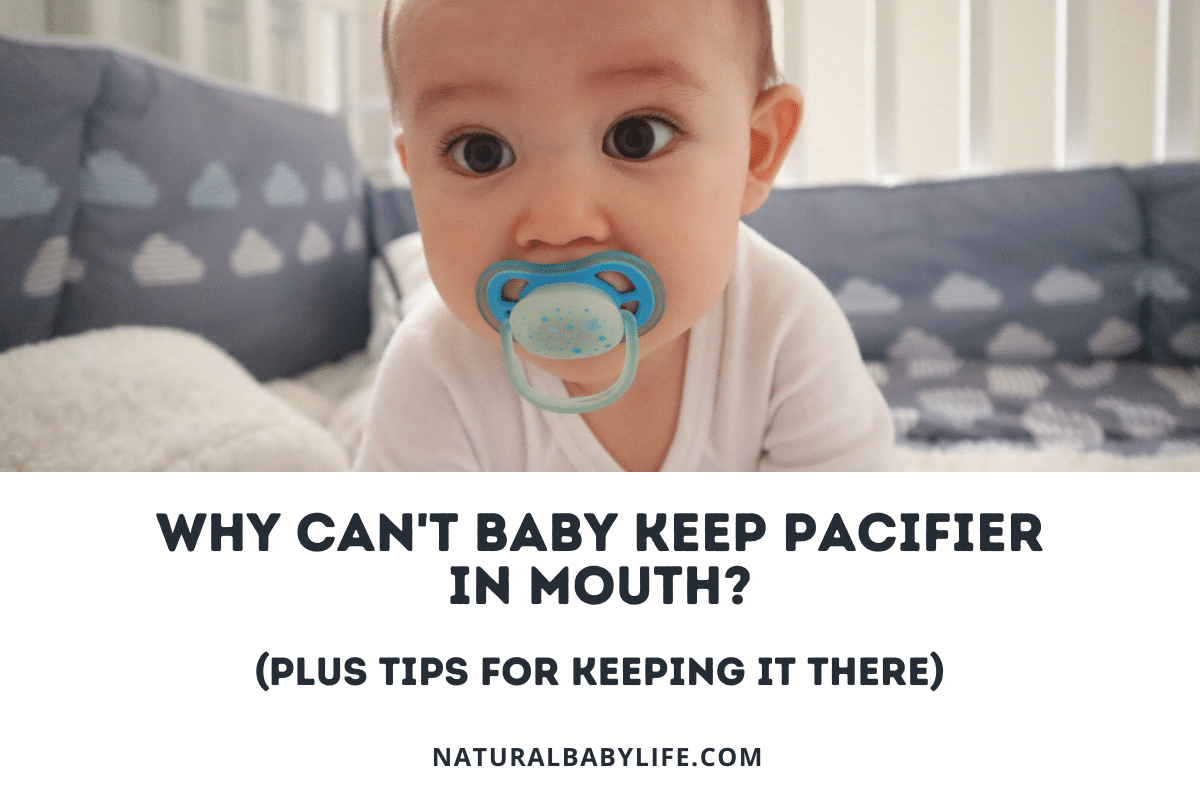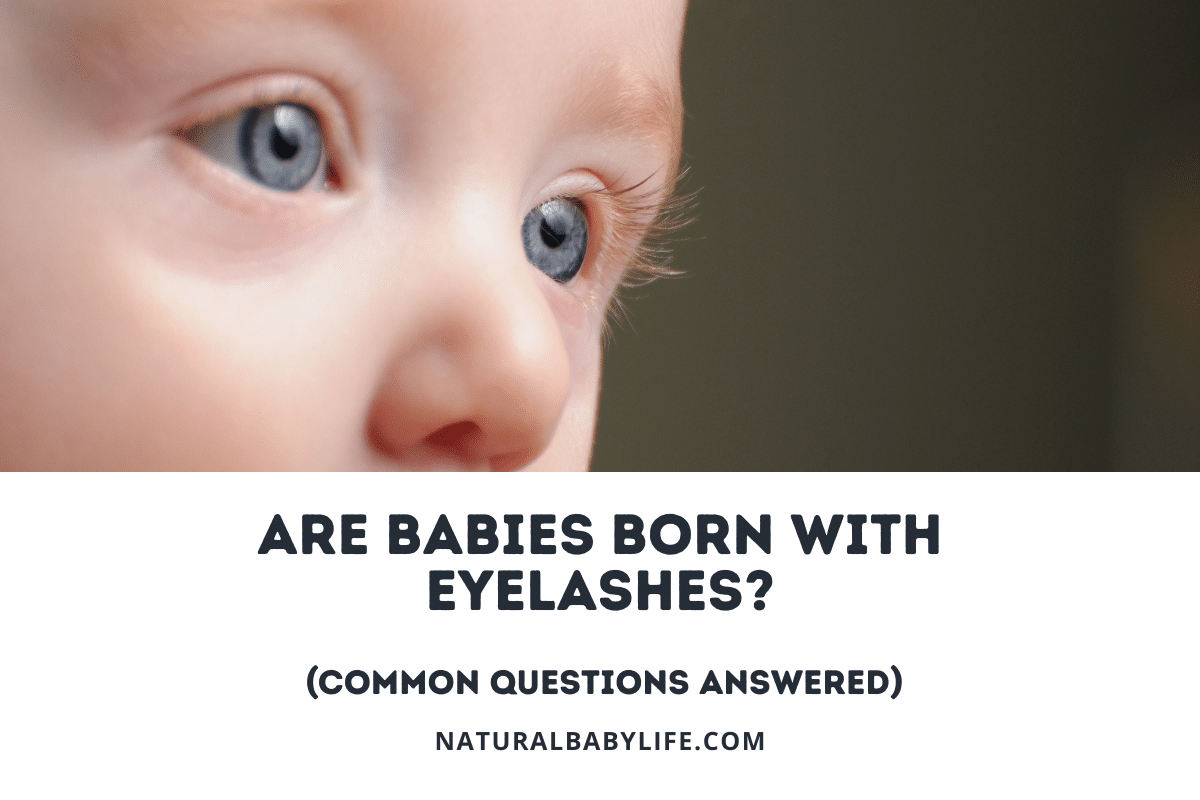Is there anything cuter than a baby blowing spit bubbles and raspberries? While it certainly is adorable, you may be wondering why babies blow spit bubbles and raspberries, and what it means for their development.
Babies blow spit bubbles and raspberries as a way to strengthen their facial muscles in preparation for talking, eating, and drinking out of an open cup, and the excess saliva softens their gums in preparation for teething. Best of all, babies often blow spit bubbles and raspberries as a way to bond and interact with their caregivers.
Keep reading to learn more about this fun and important developmental milestone!
Table of Contents
Why do babies spit and blow bubbles?
Babies blow spit bubbles and raspberries for a variety of developmental reasons that include speech skills development, fine motor development, and bonding with caregivers. This is an important developmental milestone that indicates that your baby is developing both preverbal language skills and social skills, as well as a sense of humor!
Blowing spit bubbles can also be a behavioral cue that a baby is tired, hungry, bored, or about to start fussing. As you get to know your baby, you will be able to pick up on these cues.
Blowing spit bubbles and raspberries also produces extra saliva which softens your baby’s gums in preparation for teething. Teething generally starts around the time your baby will blow their first spit bubbles and raspberries.
What does blowing raspberries mean?
You may be wondering what blowing a raspberry actually means, and what it looks like.
Blowing a raspberry is when a baby sticks their tongue out, closes their lips, then forces air out of their mouth with their lips remaining sealed around their tongue. This produces spit bubbles and a vibrating, slapping sound that is reminiscent of flatulence (which is part of why it’s funny when babies do it!).
If you are near your baby when they blow a raspberry, you may get sprayed with spit bubbles, as blowing raspberries is often messy. It’s just another occupational hazard of being a parent!
Is blowing raspberries a milestone?
Every baby’s development is unique, and this includes if and when they blow spit bubbles and raspberries. Most babies will blow their first spit bubbles and raspberries when they are between 6-9 months old, although some babies skip this stage altogether.
While watching your baby blow raspberries is certainly entertaining, it is also an important developmental milestone that signifies that your baby is developing the facial muscles and skills they’ll need to talk, eat, and drink from an open cup.
Blowing raspberries is also just one way that your baby will try to engage with you socially, and show their sense of humor. They will often blow raspberries to get your attention, make you laugh, and perhaps blow a raspberry back at them. This social interaction reinforces a baby’s bond with their caregiver, and this is also how a baby learns the back and forth pattern of a conversation.
Most babies will blow their first raspberry when they are between 6-9 months old, but don’t fret if your baby does it earlier or a little later. Every baby grows and develops on their own timeline, and some babies may skip the blowing raspberries milestone altogether. If you are concerned that your baby has not yet blown a raspberry, be sure to consult with your pediatrician.
Why do babies blow raspberries while eating
Babies don’t always have the best table manners, and you may find that your baby adores blowing raspberries while they eat. This may lead to scrubbing down both your baby and their high chair.
There are a few reasons why babies blow raspberries while they eat, including that it’s a new skill and it will likely make you laugh, and because they like to see how the food spatters from their mouths and onto their high chair tray.
Your baby may also be motivated to blow raspberries to see how you react. This is all part of how they figure out the world around them. If you are frustrated with the mess, know that this stage too shall pass.
You can always try offering a different (less messy) food or taking a short break during the meal. If your baby constantly blows raspberries with a particular food, it may be that they don’t like that food. If that’s the case, try reintroducing the food in a couple of months, as a baby’s palate can change as they mature.
Why do babies blow raspberries while breastfeeding
When your baby is breastfeeding, you are bonding, and they feel close to you. You are both benefiting from an increase in oxytocin (the love hormone), and it can be a relaxing, sweet time for the two of you. Your baby may take this opportunity to interact with you by blowing raspberries to see if you smile or laugh.
If your baby blows a raspberry on your breast, they may be delighted with the sound and pleased with themselves for learning a new skill.
If blowing raspberries interrupts your feeding session, or if it’s bothering you, try unlatching your baby and take a brief break as a means of redirection and distraction. If your baby is truly hungry, they will forgo blowing raspberries and focus on nursing.
Why do babies blow raspberries when tired
Sometimes babies will blow raspberries when they are tired.
Often, they will do this inadvertently, or as a way to keep themselves from falling asleep. Blowing raspberries is not always just cute and fun. If your baby is blowing raspberries when they’re tired, it could be a sign that they are about to start fussing.
If you notice that your baby reliably blows raspberries when they’re tired, it’s a good idea to lay them down for a nap or bedtime before they get too upset. Knowing your baby’s cues helps avoid frustration for both you and your baby.
Why do babies blow raspberries when upset
Just like when they’re tired, babies may inadvertently blow raspberries when they are upset or fussy. It can be a sign of frustration, or that your baby is overstimulated, needs a nap, needs attention, is bored, or is hungry.
Once you determine what your baby needs and soothe them, they will likely stop blowing raspberries as they start to settle down.
When do babies start blowing raspberries?
Most babies begin blowing raspberries between 6-9 months old, although some babies never blow raspberries and skip this developmental milestone completely.
Prior to blowing raspberries, babies usually drool first, then blow bubbles.
This whole process is helping your baby develop the facial muscles and fine motor skills they need to talk, eat, and drink out of an open cup, which is exciting! It’s also a sign that your baby is developing social skills and awareness, as well as a sense of humor.
When to consult your pediatrician
Keep in mind that every baby has their own developmental timeline, and there is no need to be alarmed if your baby does not blow raspberries by the time they are 9 months old. Some babies will skip this developmental milestone entirely, but it is still good to check in with your pediatrician if your baby is not blowing raspberries by 9 months old.
If a baby isn’t blowing raspberries by 9 months old, it can sometimes indicate a possible speech delay or neurological problem. Your pediatrician is your best resource for this and any other developmental concerns you may have. Early intervention and support are critical to helping your baby if they have a developmental concern of any type.
How does blowing raspberries help with development?
Blowing raspberries isn’t just cute, it’s a sign of your baby’s development!
Achieving this developmental milestone will help your baby:
- Learn how to talk. Blowing raspberries is an important milestone in speech development, as it helps strengthen the muscles used when speaking.
- Learn how to eat, and drink from an open cup. Much like with speech development, the strengthening of the mouth and jaw muscles will also enable your baby to drink from an open cup (with lots of practice!) at a later stage.
- Socialize. Even though they can’t talk (at least not in a language we understand), babies love to socialize. Blowing raspberries is one way to get your attention, get you to smile and laugh, and perhaps blow a raspberry back at your baby! Think of this as a nonverbal conversation. You are teaching your baby how to connect with people both socially and emotionally, and about the give-and-take rhythm of a conversation.
- Bond with caregivers. While babies will sometimes blow raspberries whether or not anyone is watching, they often do this with their caregivers, as a way of bonding and means of interaction.
How to encourage baby to blow raspberries
Maybe your baby hasn’t blown their first raspberry yet, or maybe you want to encourage them to do it more often.
Here are some tips for encouraging your baby to blow raspberries:
- Provide positive feedback and reinforcement. When your baby does blow a raspberry, be sure to give them your full attention and respond with delight and encouragement, so they can see that you enjoy it. This positive feedback will likely motivate them to do it again.
- Blow your own raspberries. Babies learn through observing the world around them, and through imitation. By watching you, they can see the mechanics of how to blow a raspberry and figure it out themselves. If your baby sees you blowing raspberries, this will motivate them to do the same! You can also blow raspberries against their belly or arm. Likewise, give them your arm and see if they try to blow a raspberry on it!
- Jumpstart the process. When your baby is making noises or babbling, take your finger and gently rub it up and down their lips. This may help them figure out how to blow a raspberry. At the very least, the sensation will probably delight them.
- Talk and sing to your baby. Babies learn by mimicking, and they will see how you use your mouth to talk and sing. This encourages them to do the same and to use the muscles that are necessary for blowing raspberries. It also benefits their speech development.
How to stop baby from blowing raspberries
Having a baby blow raspberries is definitely fun, but there may be times you don’t want your baby to share their newfound skill with the world. While you don’t want to discourage your baby from blowing raspberries, you can always distract or redirect them if necessary.
Consider trying these suggestions:
- If your baby is blowing raspberries while eating, take a short break. Remove the food from the baby’s high chair tray and see if this brief pause stops the raspberries. Try offering breastmilk or formula, then try feeding again. If your baby only blows raspberries with one specific food, think about holding off on that food for a little while and reintroducing it later.
- Likewise, if your baby is blowing raspberries while breastfeeding, try unlatching and taking a break. If your baby is truly hungry, they will bypass blowing raspberries and just nurse.
- Let them wear themselves out. Is your baby blowing raspberries before they fall asleep? They may be trying to keep themselves awake! Sleep always wins, eventually. If they are happy, just let them be. If they are blowing raspberries and starting to fuss when you want them to sleep, you may need to find a way to soothe your baby and help them calm down so they can sleep.
- Give themselves something else to focus on. Perhaps you are out in public, at church, in a library, or somewhere where your baby is interrupting other people or causing a minor commotion by blowing raspberries. If this is the case, try distracting your baby with a toy. They also may be hungry or tired, in which case a quick nursing session or feeding may help, with the added benefit that your baby may fall asleep.
If your baby won’t be distracted or becomes fussy, you can always leave, although most people are understanding when it comes to babies, and your baby and their blowing raspberries may be the highlight of someone’s day!

